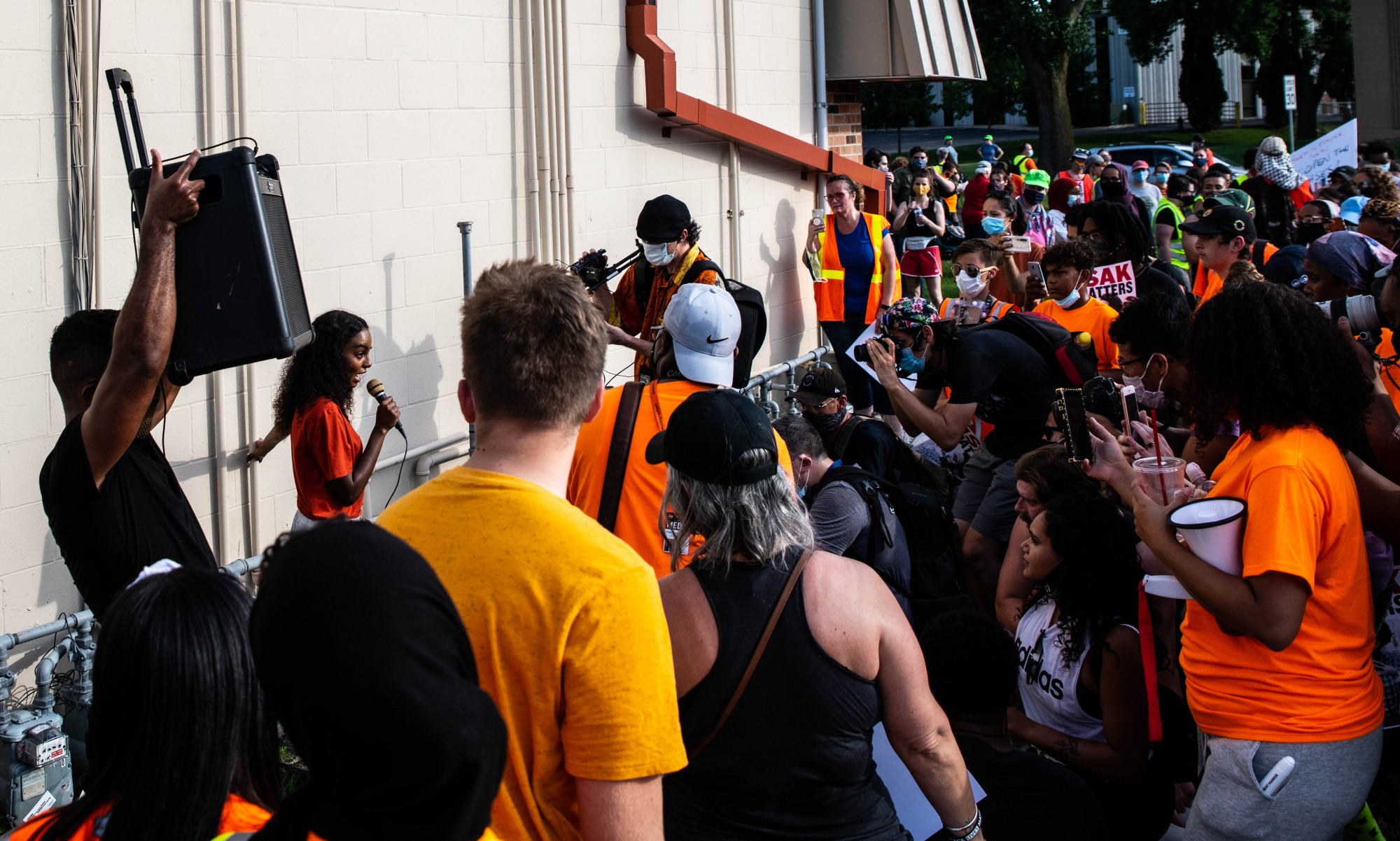More than 200 people marched through Eagan Wednesday evening, both in celebration of Somali Independence Day and in protest over last year’s police killing of Isak Aden, a young Somali man and University of Minnesota student.
Sumaya Aden, Isak Aden’s sister, led the group from Twin Cities Premium Outlets to the nearby parking lot where police killed 23-year-old Isak Aden in July of 2019, shutting down Highway 13 in the process. Protesters wore orange shirts and sweatpants, clothing that Isak Aden wore when he died, and sang along to the Somali national anthem as the crowd embarked on their route toward the site.
On the day Isak Aden was killed, his ex-girlfriend called the police and said he threatened her with a gun. Police later chased him to a parking lot where he spoke with a negotiator for multiple hours. When he allegedly reached for a gun on the ground, five police officers fired 11 rounds that hit and killed him. However, Isak Aden’s ex-girlfriend later retracted her statement that he had a gun, according to a federal lawsuit filed by the Aden family.
Sumaya told the crowd that her brother was met with an excessive police response when a SWAT team showed up to the scene. The Aden family said the officers did not have justification to use deadly force and are trying to reopen the case. However, the Dakota County Attorney, James Backstrom, said this past November that the deadly force was justified and the officers would not be prosecuted.
On the one-year anniversary of Isak Aden’s death on Thursday, the Aden family filed a federal civil rights lawsuit against the cities of Bloomington, Burnsville, Eagan and Edina. They also filed cases against the officers involved.
“The power is in the streets and the courtroom,” Sumaya Aden said to the protesters as she spoke about some of her frustrations with how her brother’s case had been handled.
Organizers distributed signs reading “Reopen Isak’s Case” to members of the crowd and popsicles to the young children in attendance. Community members in masks embraced. People brought their dogs along to the march and toddlers watched from wagons pulled by family members.
“I love seeing how diverse everyone here is,” Sumaya said, pointing out that there were older white Eagan residents alongside Somali youth.

Many young people from the Eagan community came to the event and said they had been attending the many protests across the Twin Cities in the last few weeks following the killing of George Floyd. They spoke about how prosecuting the responsible police officers is a top priority.
“If we don’t get justice, I think the Black community will feel like they can’t get anything,” 17-year-old Ranya Mohamoud said.
Many activists spoke throughout the evening, and one Kenyan DACA recipient, who identified herself only as Daisy, shared her experience with how differing cultural identities can connect within the Black Lives Matter movement.
“I think it’s really important we stand in solidarity with each other,” Daisy said. “If an injustice is happening to you, I should care enough to stand up for you.”
Along with Daisy, family members of other victims of police brutality came to support Sumaya Aden, and each person had a chance to speak at the spot where Isak Aden was killed. They talked about how losing a family member in such a devastating way connected them to each other, but their continued fight for social justice made them family.
Ashley Quiñones spoke about her husband, Brian Quiñones, who was shot and killed by five Richfield and Edina police officers. Like Sumaya, the Quiñones family has questioned why the police officers were not able to make an arrest without using less than deadly force. After Brian Quiñones’ death, AshleyQuiñones started a group called Justice Squad — a project “dedicated to dismantling and tackling all systems of oppression.”
“There is a family behind the people who are killed,” Ashley Quiñones said. “We are alive and breathing.”








